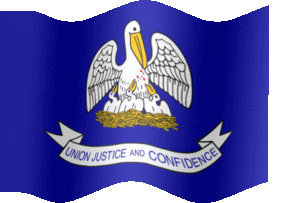 In Porter v. Times Group, the plaintiff sued People Magazine and two journalists for defamation. The case was removed, and then remanded – one of the individual defendants died and the district court allowed joinder of the Louisiana citizen appointed as that defendant’s “succession representative” under Louisiana law, which destroyed diversity. The Fifth Circuit would not ordinarily have jurisdiction over a remand order because of 28 USC § 1447(d) (“An order remanding a case to the State court from which it was removed is not reviewable on appeal or otherwise . . . .”) People Magazine argued that the joinder decision was reviewable as a collateral order, and the Fifth Circuit disagreed, finding that it did not establish the third and fourth requirements for appeal of such an order (that the order be “effectively unreviewable on an appeal from final judgment” and “too important to be denied review”).
In Porter v. Times Group, the plaintiff sued People Magazine and two journalists for defamation. The case was removed, and then remanded – one of the individual defendants died and the district court allowed joinder of the Louisiana citizen appointed as that defendant’s “succession representative” under Louisiana law, which destroyed diversity. The Fifth Circuit would not ordinarily have jurisdiction over a remand order because of 28 USC § 1447(d) (“An order remanding a case to the State court from which it was removed is not reviewable on appeal or otherwise . . . .”) People Magazine argued that the joinder decision was reviewable as a collateral order, and the Fifth Circuit disagreed, finding that it did not establish the third and fourth requirements for appeal of such an order (that the order be “effectively unreviewable on an appeal from final judgment” and “too important to be denied review”).
Monthly Archives: September 2018
 The Fifth Circuit made a second discovery-related observation in September, in Norman v. Grove Cranes, a products-liability dispute about a safer alternative design for a crane. The trial judge did not allow the plaintiff’s expert to testify on that point; on appeal, the Fifth Circuit found no abuse of discretion. Plaintiff said the expert “Perkin was unable to form an opinion regarding safer alternative design because Grove failed to produce the documents requested, i.e., the ‘draft design drawings related to the prior design of the crane at issue and similar Grove cranes.’.” The district court disagreed, “pointing out that Norman knew at least 83 days prior to the close of discovery that Perkin needed additional documents to form his expert opinion on safer alternative design but failed to file a motion to compel until a month after the close of discovery,” and noting that the plaintiff’s “failure to seek Court intervention via a motion to compel before the end of discovery shows a lack of diligence in seeking documents [he] now claims are indispensable to his expert’s ability to render a required opinion.” No. 17-20631 (Sept. 10, 2018, unpublished).
The Fifth Circuit made a second discovery-related observation in September, in Norman v. Grove Cranes, a products-liability dispute about a safer alternative design for a crane. The trial judge did not allow the plaintiff’s expert to testify on that point; on appeal, the Fifth Circuit found no abuse of discretion. Plaintiff said the expert “Perkin was unable to form an opinion regarding safer alternative design because Grove failed to produce the documents requested, i.e., the ‘draft design drawings related to the prior design of the crane at issue and similar Grove cranes.’.” The district court disagreed, “pointing out that Norman knew at least 83 days prior to the close of discovery that Perkin needed additional documents to form his expert opinion on safer alternative design but failed to file a motion to compel until a month after the close of discovery,” and noting that the plaintiff’s “failure to seek Court intervention via a motion to compel before the end of discovery shows a lack of diligence in seeking documents [he] now claims are indispensable to his expert’s ability to render a required opinion.” No. 17-20631 (Sept. 10, 2018, unpublished).
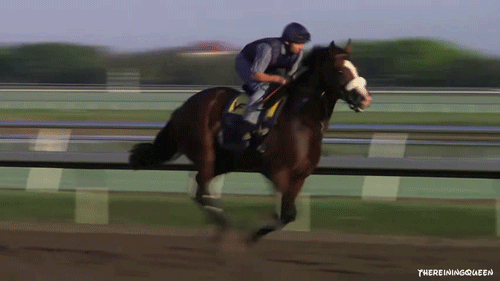 The death of the racehorse “Rawhide Canyon” led to hard-fought litigation. The district court denied the plaintiff’s motion to voluntarily dismiss under Fed. R. Civ. P. 41(a)(1), and the Fifth Circuit found an abuse of discretion in not granting it: “Because the payment of attorneys’ fees was the sole basis for the district court’s denial of voluntary dismissal and Plaintiffs subsequently made clear that they would pay these fees, the district court abused its discretion by denying Plaintiffs the ability to voluntarily dismiss their own case.” No. 17-10569 (Sept. 10, 2018, unpublished).
The death of the racehorse “Rawhide Canyon” led to hard-fought litigation. The district court denied the plaintiff’s motion to voluntarily dismiss under Fed. R. Civ. P. 41(a)(1), and the Fifth Circuit found an abuse of discretion in not granting it: “Because the payment of attorneys’ fees was the sole basis for the district court’s denial of voluntary dismissal and Plaintiffs subsequently made clear that they would pay these fees, the district court abused its discretion by denying Plaintiffs the ability to voluntarily dismiss their own case.” No. 17-10569 (Sept. 10, 2018, unpublished).
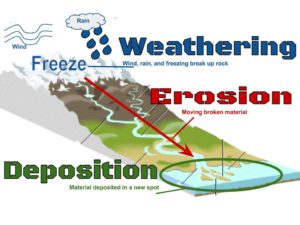 As neither interlocutory appeals about discovery nor discovery-related mandamus petition produce many Fifth Circuit opinions, a comment about discovery is notable when it is made. In National Urban League v. Urban League of Greater Dallas, as part of a summary judgment appeal, the appellant raised an issue about quashing a 30-b-6 deposition of Edward Smith. The Fifth Circuit found no abuse of discretion in denying a motion to quash when: “Defendant provided no explanation for why Smith could not arrange his travel plans to attend the deposition, given that he had ample notice of it, the funeral was the day before the deposition, and Plaintiff agreed to delay the deposition from the morning until the afternoon to allow for travel. Defendant also did not explain why it waited to object to the Rule 30(b)(6) topics until two days before the deposition was to occur.” No. 17-11469 (Sept. 20, 2018).
As neither interlocutory appeals about discovery nor discovery-related mandamus petition produce many Fifth Circuit opinions, a comment about discovery is notable when it is made. In National Urban League v. Urban League of Greater Dallas, as part of a summary judgment appeal, the appellant raised an issue about quashing a 30-b-6 deposition of Edward Smith. The Fifth Circuit found no abuse of discretion in denying a motion to quash when: “Defendant provided no explanation for why Smith could not arrange his travel plans to attend the deposition, given that he had ample notice of it, the funeral was the day before the deposition, and Plaintiff agreed to delay the deposition from the morning until the afternoon to allow for travel. Defendant also did not explain why it waited to object to the Rule 30(b)(6) topics until two days before the deposition was to occur.” No. 17-11469 (Sept. 20, 2018).
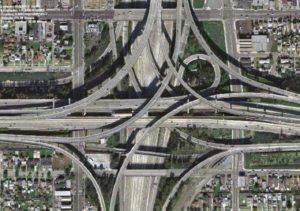 The en banc case of Alvarez v. City of Brownsville involved a difficult question about municipal liability, under 42 U.S.C § 1983, for an alleged Brady violation arising during the plea bargaining process. The plaintiff had won a $2.3 million judgment after a jury trial. The majority opinion found inadequate evidence of deliberate indifference for § 1983 liability; as to the Brady issue, it held that “case law from the Supreme Court, this circuit, and other circuits does
The en banc case of Alvarez v. City of Brownsville involved a difficult question about municipal liability, under 42 U.S.C § 1983, for an alleged Brady violation arising during the plea bargaining process. The plaintiff had won a $2.3 million judgment after a jury trial. The majority opinion found inadequate evidence of deliberate indifference for § 1983 liability; as to the Brady issue, it held that “case law from the Supreme Court, this circuit, and other circuits does  not affirmatively establish that a constitutional violation occurs when Brady material is not shared during the plea bargaining process.” From there, the sixteen judges that comprised this en banc panel authored six other opinions; this chart summarizes the authors and the joinders. No. 16-40772 (Sept. 18, 2018). It is unclear how that breakdown may carry over to commercial cases, but the opinions are revealing insights into a number of judges’ attitudes about structural and constitutional issues.
not affirmatively establish that a constitutional violation occurs when Brady material is not shared during the plea bargaining process.” From there, the sixteen judges that comprised this en banc panel authored six other opinions; this chart summarizes the authors and the joinders. No. 16-40772 (Sept. 18, 2018). It is unclear how that breakdown may carry over to commercial cases, but the opinions are revealing insights into a number of judges’ attitudes about structural and constitutional issues.
 This blog celebrates its birthday today; if you want to help celebrate, here’s a recipe for some New Orleans-style beignets.
This blog celebrates its birthday today; if you want to help celebrate, here’s a recipe for some New Orleans-style beignets.
 A standard form of an oil-and-gas project’s Joint Operating Agreement contains an attorneys’ fee provision that says: “In the event any party is required to bring legal proceedings to enforce any financial obligation of a party hereunder, the prevailing party in such action shall be entitled to recover . . . a reasonable attorney’s fee.” In Seismic Wells LLC v. Sinclair Oil & Gas Co., the Fifth Circuit found that this provision did not allow fee recovery as to a successful claim about a well damaged by a water leak. “Turning over operatorship rights and running the well on Seismic’s preferred erms are not financial obligations. Sinclair did not refuse to make some payment specified in the agreement.” (emphasis in original). No. 17-10500 (Sept. 13, 2018, unpublished).
A standard form of an oil-and-gas project’s Joint Operating Agreement contains an attorneys’ fee provision that says: “In the event any party is required to bring legal proceedings to enforce any financial obligation of a party hereunder, the prevailing party in such action shall be entitled to recover . . . a reasonable attorney’s fee.” In Seismic Wells LLC v. Sinclair Oil & Gas Co., the Fifth Circuit found that this provision did not allow fee recovery as to a successful claim about a well damaged by a water leak. “Turning over operatorship rights and running the well on Seismic’s preferred erms are not financial obligations. Sinclair did not refuse to make some payment specified in the agreement.” (emphasis in original). No. 17-10500 (Sept. 13, 2018, unpublished).
 A recurring issue in litigation about injunctions and similar court orders is how much specificity is required. In In re: Jankovic, a judgment debtor complained about a contempt order requiring his production of tax returns. The specific language required him to:
A recurring issue in litigation about injunctions and similar court orders is how much specificity is required. In In re: Jankovic, a judgment debtor complained about a contempt order requiring his production of tax returns. The specific language required him to:
“. . . do whatever is necessary, including but not limited to correct and proper authorizations, letters to the IRS Commissioner, letters to his Congressmen to help expedite the process, daily calls and visits to the Internal Revenue Services (IRS) headquarters, and anything else that he needs to do, to have the IRS provide to the plaintiffs directly all of the tax returns on file with the IRS for JAI and JAI Holdings from 2010 to the present or, if no tax returns are on file with the IRS, an official statement or documentation from the IRS proving that no tax returns exist for JAI and JAI Holdings for the tax years requested..”
The Fifth Circuit rejected his challenges, noting on this point: “Had the district court simply ordered Jankovic to ‘do whatever is necessary’ to obtain the returns from the IRS, we would have a more difficult question. However, we need not reach that question here because the district court specified particular actions, and Jankovic has not complied with those specific requirements.” No. 18-50720 (Sept. 13, 2018, unpublished).
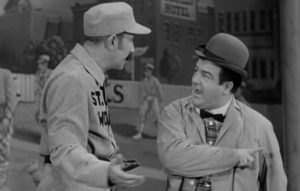 A retail business sold its defaulted accounts to a debt collector; litigation ensued about the retailer’s warranty in the sales contract that the accounts “have been originated, serviced, and collected in accordance with all applicable laws.” Conn Credit I LP v. TF Loanco III, LLC, No. 17-40148 (Sept. 10, 2018). This requirement created an “unambiguous condition precedent” when contained in a provision stating that the defendant was “obligated to transfer Accounts on a Closing Date only if . . . the representations and warranties of the Buyer or the Seller, respectively, in this Agreement are true and correct as of such Closing Date” (emphasis added). The Fifth Circuit declined to imply a prejudice requirement into the parties’ agreement, noting that “Conn does not identify a single Texas case applying a prejudice requirement outside of the insurance context” involving untimely claim notification.
A retail business sold its defaulted accounts to a debt collector; litigation ensued about the retailer’s warranty in the sales contract that the accounts “have been originated, serviced, and collected in accordance with all applicable laws.” Conn Credit I LP v. TF Loanco III, LLC, No. 17-40148 (Sept. 10, 2018). This requirement created an “unambiguous condition precedent” when contained in a provision stating that the defendant was “obligated to transfer Accounts on a Closing Date only if . . . the representations and warranties of the Buyer or the Seller, respectively, in this Agreement are true and correct as of such Closing Date” (emphasis added). The Fifth Circuit declined to imply a prejudice requirement into the parties’ agreement, noting that “Conn does not identify a single Texas case applying a prejudice requirement outside of the insurance context” involving untimely claim notification.
 In Deutsche Bank v. Burke, an appeal after a remand in a mortgage dispute, the magistrate judge “proceeded to defy the mandate and contravene the law of the case doctrine by concluding that our prior opinion was clearly erroneous and that failure to correct the error would result in manifest injustice.” Unsurprisingly, the Fifth Circuit reversed, reviewing the basic principles about those doctrines, and observing that “the conduct here is extraordinary conduct that would lead to chaos if routinely done.” No. 18-20026 (Sept. 5, 2018).
In Deutsche Bank v. Burke, an appeal after a remand in a mortgage dispute, the magistrate judge “proceeded to defy the mandate and contravene the law of the case doctrine by concluding that our prior opinion was clearly erroneous and that failure to correct the error would result in manifest injustice.” Unsurprisingly, the Fifth Circuit reversed, reviewing the basic principles about those doctrines, and observing that “the conduct here is extraordinary conduct that would lead to chaos if routinely done.” No. 18-20026 (Sept. 5, 2018).
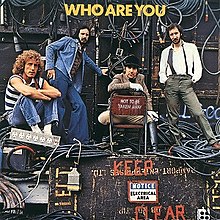 After a thorough review of the “fundamental relationship between a relator and the Government in qui tam actions,” the Fifth Circuit concluded that private relators dismissal of an action with prejudice did not bind the non-intervening U.S. government: “[R]elators sought to abandon their claims because they no longer wished to participate in the litigation. In other words, they acted on purely private interests. The Government—even one that chooses not to intervene—should not be bound by this decision, powerless to vindicate the public’s interests in other actions that may have a stronger basis or a relator more able to shoulder the burdens of litigation.” U.S. ex rel. Vaughn v. United Biologics LLC, No. 17-20389 (Sept. 7, 2018).
After a thorough review of the “fundamental relationship between a relator and the Government in qui tam actions,” the Fifth Circuit concluded that private relators dismissal of an action with prejudice did not bind the non-intervening U.S. government: “[R]elators sought to abandon their claims because they no longer wished to participate in the litigation. In other words, they acted on purely private interests. The Government—even one that chooses not to intervene—should not be bound by this decision, powerless to vindicate the public’s interests in other actions that may have a stronger basis or a relator more able to shoulder the burdens of litigation.” U.S. ex rel. Vaughn v. United Biologics LLC, No. 17-20389 (Sept. 7, 2018).
 The Consumer Financial Protection Bureau – the subject of ongoing litigation about the constitutionality of its structure, which has been at issue in the recent Kavanaugh hearings – lost a challenge to a civil investigative demand in CFPB v. The Source for Public Data: “The CFPB did not comply with 12 U.S.C. § 5562(c)(2) when it issued this CID to Public Data. First, it did not state the ‘conduct constituting the alleged violation which is under investigation.’ According to its Notification of Purpose, the CFPB is investigating ‘unlawful acts and practices in connection with the provision or use of public records information.’ Simply put, this Notification of Purpose does not identify what conduct, it believes, constitutes an alleged violation. . . . Moreover, this CID does not identify ‘the provision of law applicable to such violation.’ As discussed, the CID never identifies an alleged violation, so it is unsurprising that it fails to identify a relevant provision of law.” No. 17-10732 (Sept. 6, 2018).
The Consumer Financial Protection Bureau – the subject of ongoing litigation about the constitutionality of its structure, which has been at issue in the recent Kavanaugh hearings – lost a challenge to a civil investigative demand in CFPB v. The Source for Public Data: “The CFPB did not comply with 12 U.S.C. § 5562(c)(2) when it issued this CID to Public Data. First, it did not state the ‘conduct constituting the alleged violation which is under investigation.’ According to its Notification of Purpose, the CFPB is investigating ‘unlawful acts and practices in connection with the provision or use of public records information.’ Simply put, this Notification of Purpose does not identify what conduct, it believes, constitutes an alleged violation. . . . Moreover, this CID does not identify ‘the provision of law applicable to such violation.’ As discussed, the CID never identifies an alleged violation, so it is unsurprising that it fails to identify a relevant provision of law.” No. 17-10732 (Sept. 6, 2018).
 In 2018, the Texas Supreme Court and the Fifth Circuit have taken different approaches to an important type of “Casteel” problem, in which a jury question has several legally viable theories, some of which are not supported with adequate evidence.
In 2018, the Texas Supreme Court and the Fifth Circuit have taken different approaches to an important type of “Casteel” problem, in which a jury question has several legally viable theories, some of which are not supported with adequate evidence.
Federal. After a thorough (and infrequently-seen) summary of how federal law has developed on the “Casteel problem” of commingled liability theories, the Fifth Circuit concluded in Nester v. Textron, Inc., 888 F.3d 151 (5th Cir. 2018): “We will not reverse a verdict simply because the jury might have decided on a ground that was supported by insufficient evidence.” (applying, inter alia, Griffin v. United States, 502 U.S. 46 (1991)).
State. In Benge v. Williams, 548 S.W.3d 466 (Tex. 2018), a medical-malpractice case, the Texas Supreme Court observed: “The jury question in the present case, unlike the one in Casteel, did not include multiple theories, some valid and some invalid. It inquired about a single theory: negligence. But we have twice held that when the question allows a finding of liability based on evidence that cannot support recovery, the same presumption-of-harm rule must be applied.”
(Thanks to Mark Trachtenberg for pointing out this comparison at the recent Advanced Civil Appellate Course!)
 The plaintiff in Bloom v. Aftermath Public Adjusters, Inc. tried to overcome a limitations problem with the tolling doctrine for malpractice claims recognized by Hughes v. Mahaney & Higgins, 821 S.W.2d 154 (Tex. 1991). The plaintiff’s claim involved the conduct of a licensed public adjuster working for an insurance company; the Ffith Circuit characterized his argument as saying “that public adjusters are actually lawyers in disguise. Bloom concedes defendants are technically ‘non-lawyers,’ but he insists they effectively ‘provide[d] legal services,’ because there was once a time when Texas prohibited non-lawyers from engaging in public adjusting.” The Court was unpersuaded in this Erie case:
The plaintiff in Bloom v. Aftermath Public Adjusters, Inc. tried to overcome a limitations problem with the tolling doctrine for malpractice claims recognized by Hughes v. Mahaney & Higgins, 821 S.W.2d 154 (Tex. 1991). The plaintiff’s claim involved the conduct of a licensed public adjuster working for an insurance company; the Ffith Circuit characterized his argument as saying “that public adjusters are actually lawyers in disguise. Bloom concedes defendants are technically ‘non-lawyers,’ but he insists they effectively ‘provide[d] legal services,’ because there was once a time when Texas prohibited non-lawyers from engaging in public adjusting.” The Court was unpersuaded in this Erie case:
“But that was then, and this is now. Even assuming Texas law previously classified public adjusting as legal practice, under the relevant regime, these defendants are non-lawyers who were not engaged in legal practice. By definition, Bloom’s claims cannot implicate the unique relationship that triggers the bright-line rule from Hughes. Only Texas has the power to say where lawyer-ing ends and adjusting begins, just as its courts have the sole power to decide Hughes’s outer bounds.”
No. 17-41087 (Sept. 4, 2018).
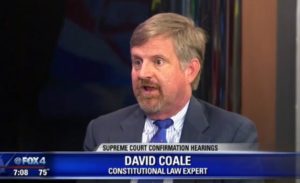 I commented today about the start of the Kavanaugh hearings on the morning show of Dallas’s Fox affiliate.
I commented today about the start of the Kavanaugh hearings on the morning show of Dallas’s Fox affiliate.
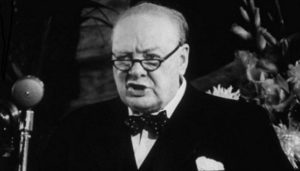 Having just now seen Darkest Hour, the Academy Award-winning film about Churchill confronting Britain’s terrible military situation in May of 1940, I was inspired to update this blog’s page about legal writing with an essay written by Churchill as a young man called “The Scaffolding of Rhetoric.” It illustrates five simple ways to put words together to add power to the overall message they convey.
Having just now seen Darkest Hour, the Academy Award-winning film about Churchill confronting Britain’s terrible military situation in May of 1940, I was inspired to update this blog’s page about legal writing with an essay written by Churchill as a young man called “The Scaffolding of Rhetoric.” It illustrates five simple ways to put words together to add power to the overall message they convey.